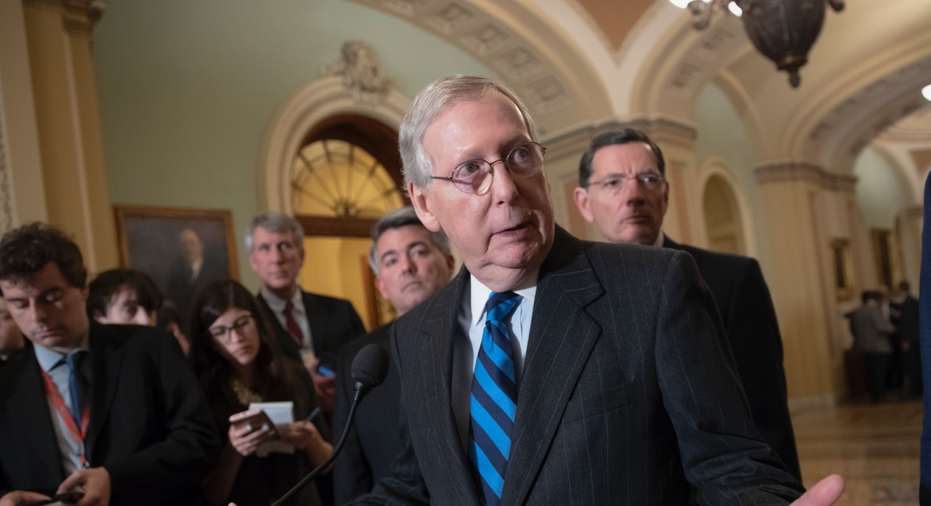McConnell says he's open to paring back US spending bill

WASHINGTON – The Senate's top Republican said Tuesday that he's open to a proposal from the White House to pare back a hard-fought spending package that has come under assault from party conservatives.
But at the same time, Kentucky Sen. Mitch McConnell said the idea of cutting billions of dollars of just-approved spending may not have enough support to pass the narrowly divided Senate.
The idea is being floated by the Trump White House with support from top Republicans like House Majority Leader Kevin McCarthy, though it's clear that there isn't enough support to pass such a package through Congress. Several Republicans on the Appropriations Committee, including Susan Collins of Maine, Lisa Murkowski of Alaska, Lamar Alexander of Tennessee and Lindsey Graham of South Carolina, say they're against the idea.
"It's going nowhere," Graham said. "We made a deal."
On Tuesday, McConnell, who supervised the lengthy talks that produced last month's $1.3 trillion government spending bill, said he's open to considering the idea.
"It's no secret that the omnibus bill was larger than most Republicans would like. But it was a bipartisan negotiation," McConnell told reporters. "Having said that, I'm willing to discuss with the administration the possibility of some kind of a rescissions package. I think it's worth a discussion. Whether that's achievable is another matter."
The White House says work is underway to identify a possible package of rescissions for submission to Congress.
"The president has made clear that he is not happy with the amount of non-defense spending in the omnibus bill and will work with like-minded partners on Capitol Hill to see how we can reduce wasteful Washington spending within the law," White House budget director Mick Mulvaney said in a statement.
Under the Senate's arcane rules, an official presidential rescissions proposal could advance through the Senate without fear of a filibuster by Senate Democrats. The Senate, however, is split 51-49 in favor of Republicans, which means the defection of a single GOP vote is sufficient to kill legislation.
"I'm just very concerned about reopening a very complicated negotiation that was agreed to by all parties including congressional leaders and the White House," Collins said. "The president would be far better advised to focus on the upcoming year's fiscal budget rather than reopening an agreement that all parties signed off on."
Incoming Senate Appropriations Committee Chairman Richard Shelby, R-Ala., is cool to the idea as well, saying, "We ought to keep our agreements." He added that he needs bipartisan cooperation to advance future spending bills through the Senate.



















